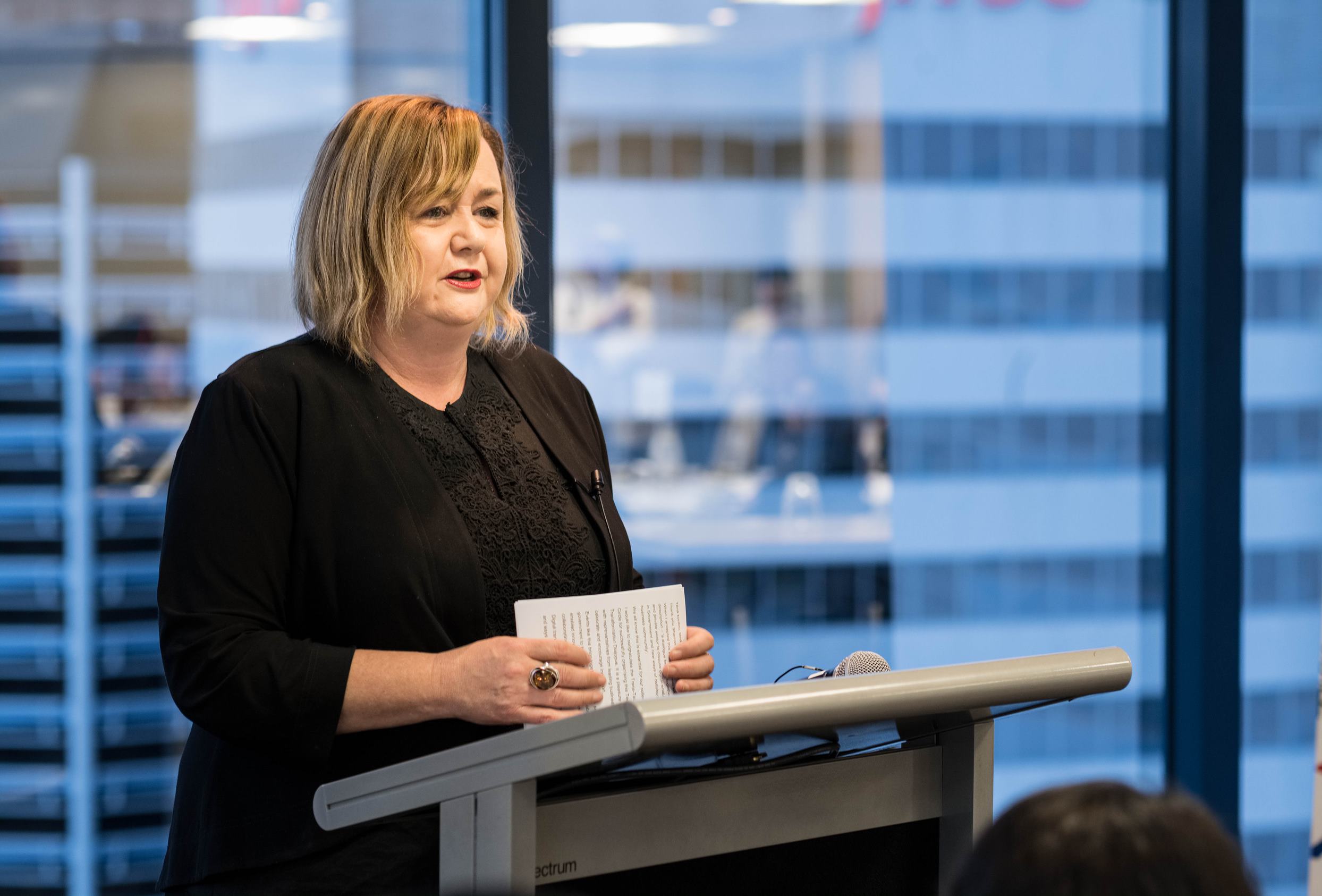Research from Microsoft, commissioned by IDC, predicts Artificial Intelligence (AI) will double the rate of productivity in New Zealand by 2021, however nearly half of Kiwi businesses have yet to start their AI journey.
Digital transformation is one of the greatest opportunities and challenges facing every organisation today, as well as New Zealand’s workers. Today Microsoft’s recent AI research, Future Ready Business: Assessing Asia Pacific’s Growth Potential Through AI, was presented by Microsoft New Zealand’s Director of Public Sector Jeff Healey and a panel of experts at Microsoft’s Digital Transformation Dialogue and Round Table.
The study evaluated six dimensions critical to ensuring the success of a nation’s AI journey, revealing that New Zealand needs to build upon its culture, along with its capabilities and strategy to accelerate its AI journey.
Keynote speaker and Minister of Government Digital Services, Hon Dr Megan Woods, said collaboration between sectors is the key approach to maximising the potential of new technologies to transform New Zealand’s economy.
“Artificial intelligence has the potential to increase New Zealand’s GDP by up to $54 billion by 2035 through productivity gains and the creation of high value jobs. Where the business sector prospers, people should too. But for everybody to benefit from new technologies like artificial intelligence, we need to be aware of the ethical implications and the potential to exacerbate or create new divides and inequalities.
There are great opportunities but there also risks, as with most new things, and we need to have a collaborative approach to solving the issues that the new technologies are throwing up.”
What’s truly unique here in New Zealand is how government works in partnership with the tech sector to harness the benefits from these key technologies while ensuring we all address and mitigate these risks together. And it is this willingness to collaborate both by the Government and the private sector that allows us to be highly adaptable and innovative. This is something that other countries can only aspire to.”
Microsoft National Technology Officer, Russell Craig, said that today, every company is a software company, and increasingly, every interaction is digital.
“To be successful in this new world, organisations need to be a fast adopter of best-in-class technology. They also need to build their own unique digital capabilities. AI is the defining technology of our time that significantly accelerates business transformation, enables innovation, boosts employee productivity, and ensures further growth. Economies and businesses that have yet to embark on their AI journey run a real risk of missing out on the competitive benefits that are enjoyed by leaders.”
According to IDC Research Director Louise Francis, New Zealand is not yet fully prepared to take advantage of the opportunities presented by AI.
Louise revealed that the study shows a large disparity between business leaders’ and workers’ understanding of tech disruption with almost a third of Kiwi workers (30%) unaware their jobs are set to be significantly changed by digital transformation.
“To succeed in the AI race, New Zealand must substantially improve its readiness for the technology. Organisations’ leadership need to make AI a core part of their strategy and develop a learning agility culture. They have to continuously invest in this transformative technology for the long-term success, and sometimes this will require forfeiting of expectation of immediate returns,” said Louise.
Business leaders who are adopting AI face three top challenges: a lack of thought leadership and leadership commitment to invest in AI; lack of skills, resources and continuous learning programs, and lack of knowledge on how to deploy and monitor AI solutions.
“To move ahead on their AI journeys businesses must create the right organisational culture. A significant majority of the business leaders and workers surveyed believe cultural traits that support AI journeys, such as risk-taking, proactive innovation, as well as cross-function partnerships among teams, are not pervasive today.”
“Overall, workers in New Zealand are more sceptical than business leaders about the cultural readiness of their organisations,” added Louise.
Russell explained that because of their workers’ scepticism, business leaders must now embrace a new organisational culture where innovation and continuous learning are core components, to set the stage for agility, adaptability and growth.
“Microsoft’s vision for AI is about people and AI technology cannot progress without them. This means millions will need to be encouraged to transform themselves into the skilled workers and learners that an AI future needs,” added Russell.
According to panellist, Volpara Health Technologies Chief Executive Officer, Ralph Highnam, the adoption of AI is saving women’s lives by improving the breast screening process and likelihood of early detection. Highnam cited an example that Microsoft AI technology has enabled data to be captured and analysed over time to understand trends and the more people who are screened, the “smarter” the breast screening capabilities become.
“Using Microsoft AI technologies, VolparaEnterprise software enables facility managers to monitor the performance of their technologists and radiologists over time, in ensuring the consistent image quality vital to detecting more cancers at an earlier stage,” added Ralph.
Russell said that staying competitive in today’s market requires adaptability from both employers and workers – and the panellists agreed.
“Ultimately, organisations with an agile workforce and a progressive management who are willing to deal with change will have a greater chance to succeed. This means that in an AI-enabled future, organisations that have both the skills and the mindset to adapt are in a better position to create new breakthroughs.”
For more information on the AI research findings, please find below the full IDC/Microsoft slide deck presented at the New Zealand round table.
To review the full IDC/Microsoft Research please click here

